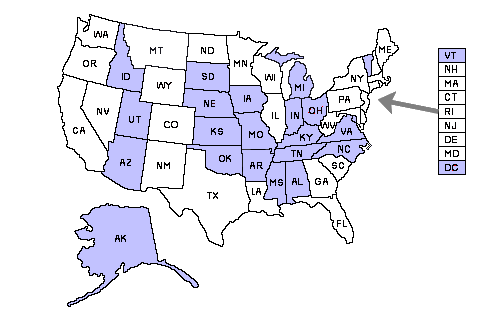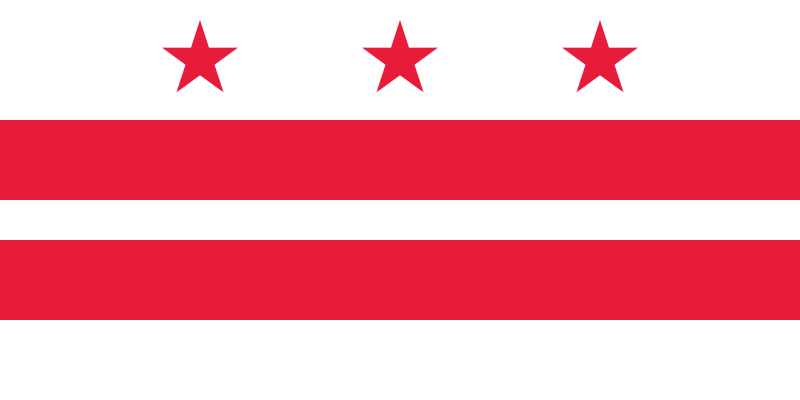
First Things First
If you’ve been following the gun laws in DC over the years, you’ll know it’s been a rollercoaster ride the entire time, as we all waited to see what the courts finally decided on in letting residents carry concealed handguns in the nation’s capital. Fortunately, we seemed to have reached the light at the end of the tunnel. As of October 2017, Washington DC is now embracing its shall-issue roots, and no longer requires a “good cause” in order to a CCW license applicant to be issued a license. This means, as long as you meet all the requirements, you will be issued a license, and can carry concealed in the permitted areas of the city. You still will not be able to carry openly, even with the license, however.So What’s Required for a CCW License?
Because of DC’s unique position as part of the US but not exactly its own state, there are some particular requirements when it comes to getting a CCW license. You’ll first need to pick up an application form from the DC Metropolitan Police Department (MPD), or print out a copy from their website. To qualify for a DC CCW license, technically called a License to Carry a Handgun (LTC), you must:- Be a resident of or have a place of business:
- In DC;
- In the US and have a CCW permit from another state; or
- In the US, and meet all the registration requirements of DC.
- Be 21 or older;
- Have a DC-registered handgun;
- Not be prohibited from owning a handgun (well, yeah); and
- Meet the training requirements.
- Were dishonorably discharged from the US Armed Forces;
- Are a former US citizen who has renounced his citizenship;
- Were convicted of two or more DUIs in the last 5 years;
- Were the subject of a protection order in the last 5 years;
- Were convicted of misdemeanor domestic abuse;
- Are an alcoholic, addict, or habitual user of controlled dangerous substances; or
- Suffer from a mental illness or condition that creates a substantial risk you are a danger to yourself or others.
Train Like You Fight
The training requirement is not too difficult, but may also be skipped in certain situations. Generally though, unless you are in the military or are law enforcement, you will have to take the training course. You can even submit the application without having taken the training portion yet, as long as you do complete it within 45 days of submitting your application. You are exempt from the training requirement if you show:- Firearms training provided by an NRA-certified instructor;
- Your DD214 (if you’re in the military);
- A hunting license;
- Retired law enforcement officer credentials; or
- An armed special police officer license.
- Firearm safety, including firearm safety in the home, a discussion of prevention of access by minors, locking and storing of firearms, and use of safety devices such as secure lock boxes;
- Firearm nomenclature;
- The basic principles of marksmanship;
- The care, cleaning, maintenance, loading, unloading, and storage of pistols;
- Situational awareness, conflict management, and use of deadly force;
- Selection of pistols and ammunition for defensive purposes; and
- All applicable District and federal firearms laws.
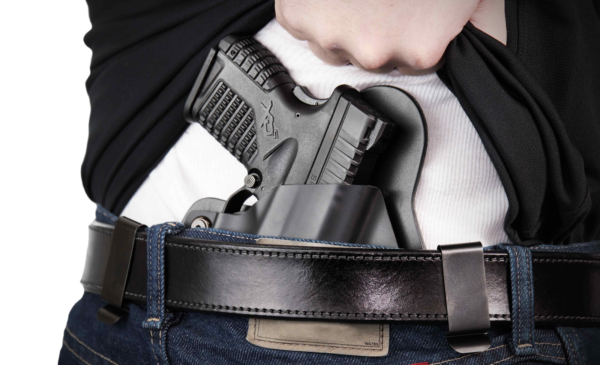
Locals Only?
For anyone who does not live in DC, but may work in the DMV area, most likely Virginia or Maryland, you’ll be glad to know that DC does issue non-resident licenses. To qualify for a non-resident license, you’ll need to:- Meet all the requirements of the standard permit
- Meet the training requirements, through any DC or out-of-state course; and
- Provide proof of training on the firearms and self-defense laws of DC.
The Waiting Game
Once you’ve submitted your application, you’ll need to wait about 90 days before you hear back from the MPD Firearms Registration Section (FRS). Of course, now that the “good cause” requirement has been eliminated from the LTC application, the MPD may be backed up and you might be waiting much longer to hear back. It should be a much more straightforward process now that there is no “good cause” requirement for the application, so unless you forgot to provide some information required in the application, you should receive a new LTC in the mail after a bit of a wait. If you receive a letter denying you the LTC, you’ll want to read over what exactly the problem is, and if it’s a minor issue you can fix, make sure to quickly address the problem. You have 15 days from the denial to appeal the decision to the MPD chief of police. Once you’ve fixed any problems you had, or maybe didn’t have any problems at all, you should finally get your hands on that LTC so you can carry concealed around town! The only thing you’ll need to remember now is to renew the license every 2 years, and always stay vigilant!Previously Denied?
If you had applied for an LTC previously and were denied because you did not have a “good cause”, now is a good time to re-apply for the license, while your training is still hopefully valid (only training taken in the last 2 years can be used in an LTC application). You’ll have to file the application all over again, but as long as you met all the other requirements last time, you should be granted an LTC this time around!Where Do You Think You’re Going?
Even with an LTC, you’ll still need to be careful where you bring your handgun. Some places are still off limits, even to LTC holders.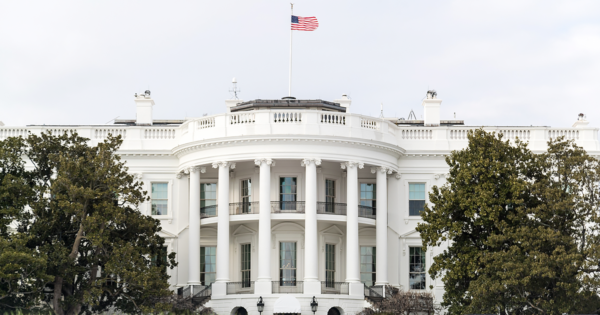
- Within 1000 feet of a:
- Daycare;
- Elementary school;
- Vocational school;
- Secondary school;
- College;
- Junior college;
- University;
- Public swimming pool;
- Playground;
- Video arcade; or
- Youth center.
- In a building or office occupied by the DC government or its agencies;
- In a hospital or office where medical or mental health services are the primary services provide;
- In a penal institution (i.e. jail, prison), secure juvenile residential facility, or halfway house;
- In a polling place, while voting is taking place;
- On any public transportation;
- In any establishment where alcohol is sold for consumption (i.e. a bar);
- In a stadium or arena;
- At a public gathering or special event, once you have been notified firearms are prohibited (by a sign, or by law enforcement officers);
- At the public memorials on the National Mall and along the Tidal Basin;
- At the White House complex, including the area surrounded by Constitution Avenue, N.W., 15th Street, N.W., H Street, N.W., and 17th Street, N.W.;
- At the Naval Observatory, including the area surrounded by Calvert Street, N.W. to Massachusetts Avenue, N.W., and around Observatory Circle to Observatory Lane;
- Within 1000 feet of a moving dignitary or high-ranking official when they are moving under the protection of the MPD, US Secret Service, US Capitol Police, or any other law enforcement agency working with the MPD; and
- Any area with a sign clearly stating carrying of firearms is prohibited.
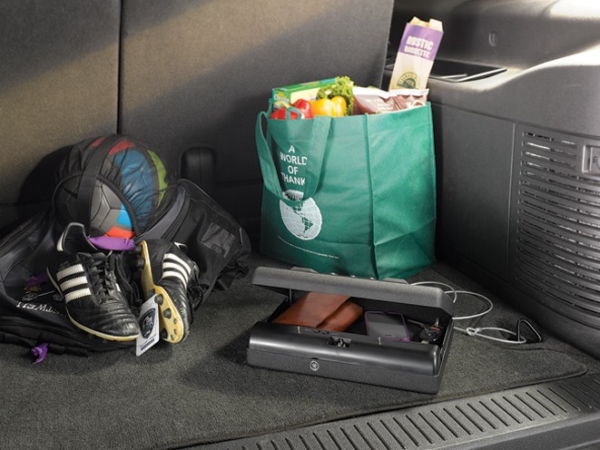
Don’t Carry Too Much
DC also regulates the amount of ammo you can carry while carrying concealed. For those of you who already checked out our DC gun laws section, you’ll (hopefully) remember that DC limits the magazine size of firearms to only those that can hold 10 rounds or less. Because of the DC magazine size rule, when you are carrying concealed, you are only allowed to carry enough ammo to fully load the handgun twice, or up to 20 rounds total, whichever is less. That means, if you’ve got a Glock with a round in the chamber and a mag with 10 rounds in it, your spare mag is only allowed to hold 9 rounds, even though you can fit one more in the spare.Reciprocity
One of the benefits of having a LTC is that you’ll be able to carry concealed while visiting the rest of the country! A number of states in the US recognize the DC LTC, so you’ll be able to keep your handgun strapped to your hip while on your next vacation! A DC LTC is recognized in:- Alabama
- Alaska
- Arizona
- Arkansas
- Idaho
- Indiana
- Iowa
- Kansas
- Kentucky
- Michigan
- Mississippi
- Missouri
- Nebraska
- North Carolina
- Ohio
- Oklahoma
- South Dakota
- Tennessee
- Utah
- Vermont
- Virginia
